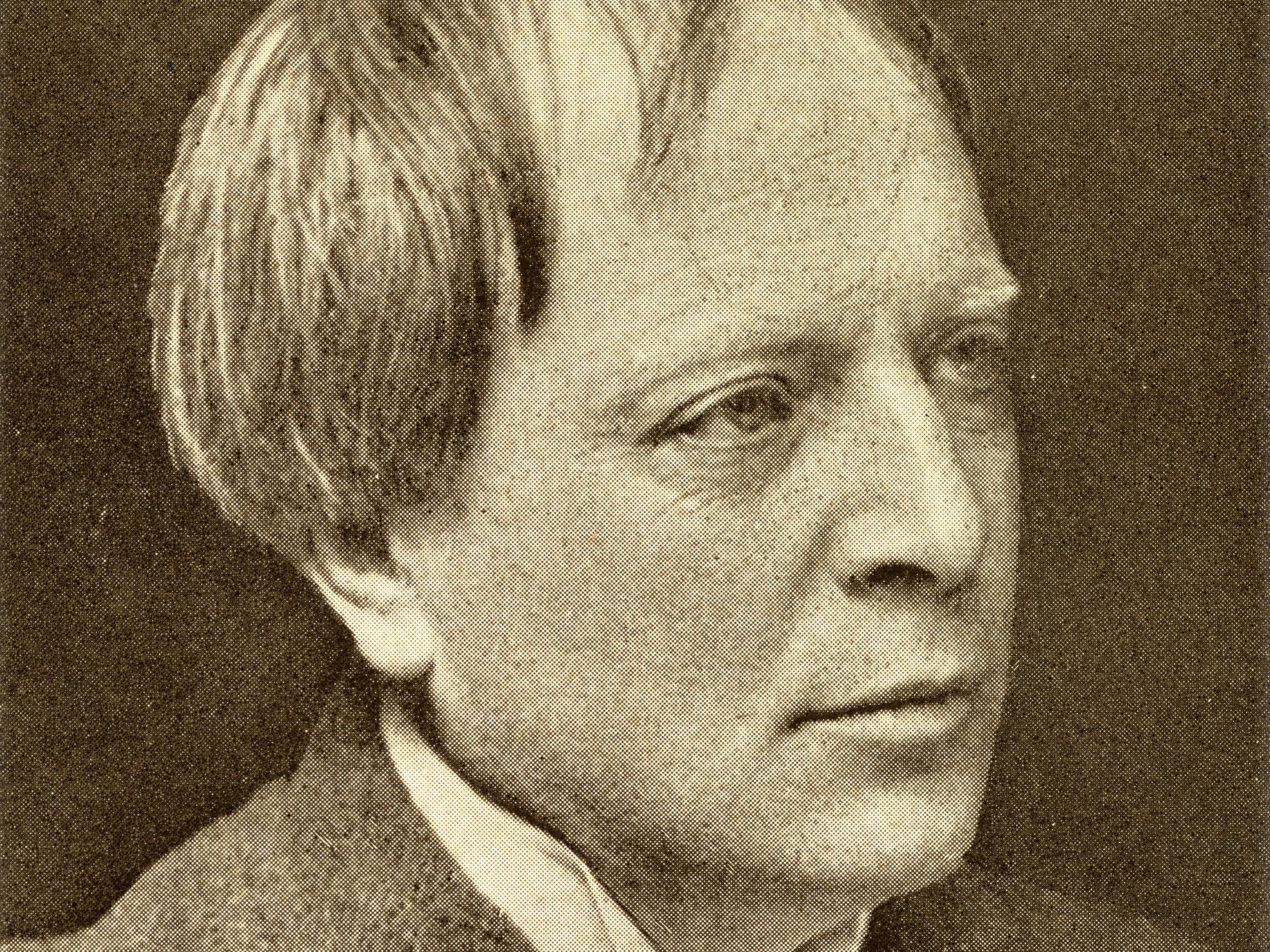St. David's Day: Celebrating Arthur Machen, the forgotten Welsh horror writer admired by Stephen King
Modern genre writers as varied as Clive Barker, Alan Moore, Neil Gaiman and True Detective's Nic Pizzolatto all owe a debt to this late Victorian pioneer of 'weird fiction'

Your support helps us to tell the story
From reproductive rights to climate change to Big Tech, The Independent is on the ground when the story is developing. Whether it's investigating the financials of Elon Musk's pro-Trump PAC or producing our latest documentary, 'The A Word', which shines a light on the American women fighting for reproductive rights, we know how important it is to parse out the facts from the messaging.
At such a critical moment in US history, we need reporters on the ground. Your donation allows us to keep sending journalists to speak to both sides of the story.
The Independent is trusted by Americans across the entire political spectrum. And unlike many other quality news outlets, we choose not to lock Americans out of our reporting and analysis with paywalls. We believe quality journalism should be available to everyone, paid for by those who can afford it.
Your support makes all the difference.Today is 1 March, which this year plays host to both World Book Day and St. David's Day, the latter honouring Wales's patron saint and the subject of today's Google Doodle.
So what better way to mark the twin celebration than by turning a spotlight of one of the great Welsh authors?
Arthur Machen (1863-1947) is less heralded than his countrymen Dylan Thomas, Richard Llewellyn or Raymond Williams but remains a fascinating character and one of the most distinctive writers in any language.
A specialist in supernatural and fantasy fiction, he is best known for his novella The Great God Pan (1894), which was hailed by no less an authority than Stephen King as, "Maybe the best [horror story] in the English language".
Machen was born in Caerleon, Monmouthshire, a vicar's son who became infatuated from a young age with the area's brooding landscape and rich Celtic, Roman and medieval history, particularly the Holy Grail and the legends of King Arthur.
Machen was educated at Hereford Cathedral School but his interest in the occult is said to trace back to his discovery of a copy of Charles Dickens's periodical Household Words in his father's rectory library, which contained an illuminating article on alchemy.
Arthur became a voracious reader, entranced by The Arabian Nights, Thomas de Quincey, Tennyson and Walter Scott.
Torn between the Christian faith of his clergyman ancestors and his burgeoning fascination with pagan spirituality, the young Machen hoped to attend university to further his studies but alas the family could not afford to send him.
Instead, he moved to London and lived in relative poverty as a Grub Street journalist and translator from French - bringing Casanova's memoirs to an eager British public, among other commissions. In 1887, he married Amelia Hogg, a music teacher and bohemian who introduced him to the capital's literary scene.
Having published a handful of early poems and prose works, Machen delivered The Great God Pan in 1894, a gothic horror tale dealing in brain surgery and spectral satyrs taking inspiration from Robert Louis Stevenson, a work that saw him denounced in the press for "degeneracy", not least because of the book's saucy cover by Aubrey Beardsley.
Other popular short stories and novellas followed, including The Three Imposters (1895), Hieroglyphics (1902), 'The White People' (1904), The Hill of Dreams (1907), and the prose-poem collection Ornaments in Jade, written in 1897 but not published until 1924.
In 1899, Machen's beloved wife passed away leaving him grief-stricken. He was persuaded to join the Hermetic Order of the Golden Dawn - a secret society devoted to the study and practice of the paranormal - by a friend seeking to ease his suffering. He remained interested in magick throughout his life.
Machen also tried his hand as a stage actor before remarrying in 1904 and recommitting himself to journalism to make ends meet, writing for The Academy - a publication owned by Oscar Wilde's lover Lord Alfred Douglas - and finally taking a full-time job with press baron Lord Northcliffe's Evening News in 1910.
Perhaps Machen's most enduring success as a writer came with the outbreak of the First World War and his story 'The Bowmen' (1914), based on the legend of the Angels of Mons coming to the aid of British soldiers on the frontline.
His stock rose once more and he followed its success with The Terror (1917) and The Secret Glory (1922), a final masterpiece bringing recognition in America.
Although Machen had numerous famous friends in Edwardian London - Augustus John, Wyndham Lewis, Jerome K. Jerome were neighbours in St. John's Wood - financial security always eluded him.
Only an appeal organised on his behalf by the likes of TS Eliot, George Bernard Shaw, Max Beerbohm and Algernon Blackwood ensured that he could spend his final years in relative comfort. He died in Amersham, Buckinghamshire, in 1947.
Within the horror genre, Machen remains a giant whose influence has been acknowledged by everyone from HP Lovecraft and King to Mick Jagger, Clive Barker, John Carpenter, Guillermo del Toro, Alan Moore, Neil Gaiman and even True Detective's Nic Pizzolatto, who drew on the wellspring of weird fiction for the Carcosa and Yellow King conceits in that show's stellar first series.
Stand-up comedian Stewart Lee is a Machen fan, as was Mark E Smith, recently deceased frontman of The Fall, who named their 2000 album The Unutterable from the master and said: "The real occult's in the pubs of the East End. In the stinking boats of the Thames, not in Egypt. It's on your doorstep basically."
Arthur Machen was a great Welshman whose work deserves to be celebrated today of all days.
Join our commenting forum
Join thought-provoking conversations, follow other Independent readers and see their replies
Comments